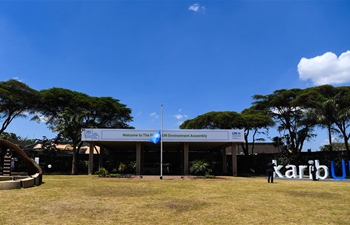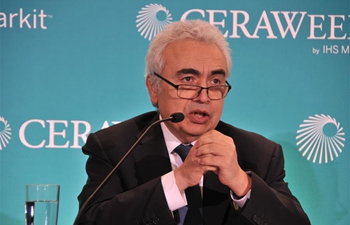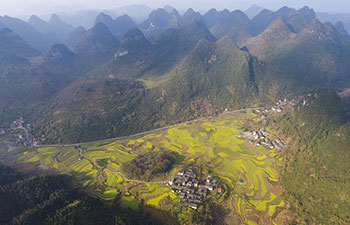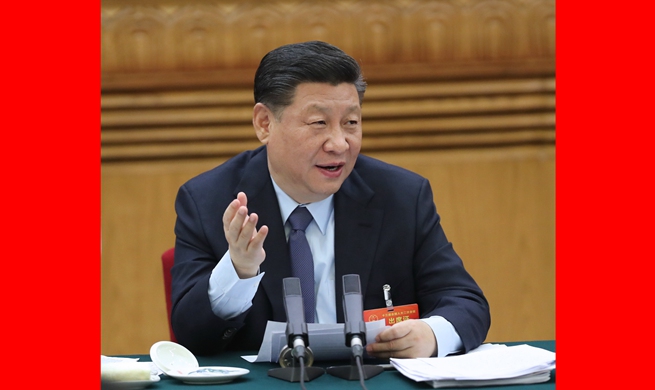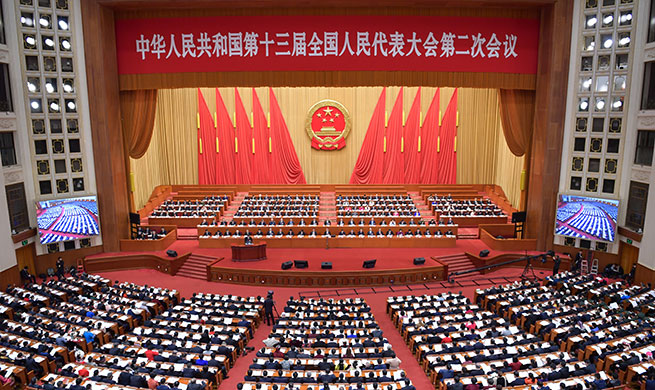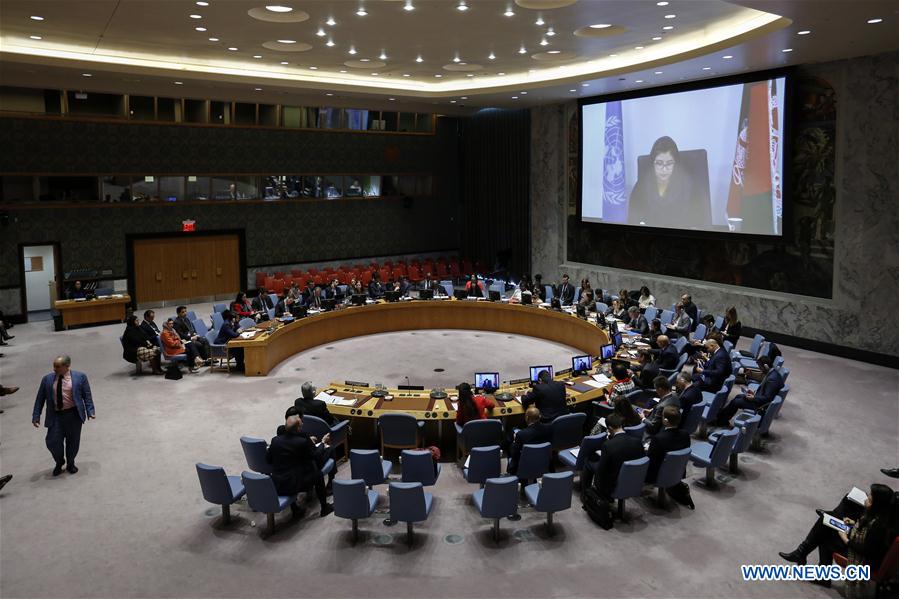
Photo taken on March 11, 2019 shows the Security Council holding a meeting on the situation in Afghanistan, at the United Nations headquarters in New York. The top UN envoy for Afghanistan on Monday warned against the challenges to this year's presidential election in the country. (Xinhua/Li Muzi)
UNITED NATIONS, March 11 (Xinhua) -- The top UN envoy for Afghanistan on Monday warned against the challenges to this year's presidential election in the country.
This year's presidential election will be a critical step forward in further consolidating Afghanistan's representative political system, said Tadamichi Yamamoto. "The holding of the presidential election on schedule, however, will be very challenging."
The widespread reports of irregularities during parliamentary elections in October 2018 undermined confidence in the electoral management bodies. As a result, the country's Election Law had to be amended and the Independent Election Commission and the Electoral Complaints Commission had to be reshuffled, he told the Security Council.
"With less than five months remaining until election day, the technical and political challenges are daunting," said Yamamoto, the UN secretary-general's special representative and head of the UN Assistance Mission in Afghanistan (UNAMA).
The amended Election Law provides for reforms, including the use of biometric technology and change in the electoral system; and for the conduct of three additional elections: provincial council elections, district council elections, and parliamentary elections for the province of Ghazni.
The commissioners will need to assess whether the current electoral calendar will permit the holding of four simultaneous elections in July, said Yamamoto.
"It will likely be a stark choice: hold the presidential election on schedule or implement all that are stipulated in the amended Election Law, knowing that this may entail a significant postponement of the presidential election."
The United Nations will continue to work with Afghan stakeholders to help them ensure that the electoral process is conducted in a credible, transparent and inclusive manner, said Yamamoto. "It is important, however, that Afghan institutions and stakeholders fully realize that the ultimate responsibility and ownership for elections rests with the people of Afghanistan."
Yamamoto noted that all this is taking place in the context of a war which continues to inflict a devastating toll on civilians.
According to UNAMA's statistics, 2018 was the deadliest year on record for the Afghan conflict, with a total of 10,993 civilian casualties, including 3,804 civilian deaths.
Another major socio-economic challenge is the issue of narcotics, he said.
Despite a drop in the opium production in 2018, the significant levels of opium poppy cultivation and illicit trafficking of opiates remain a threat to stability in the country, said Yamamoto.
"We estimate that 10 percent of the adult population are addicted to narcotics. In order to tackle this complex issue, the whole demand and supply chain needs to be addressed."
Today, over half the population in the country live under the poverty line, compared with 37 percent in 2014, noted Yamamoto.
Over the last year, severe drought has worsened living conditions further, with 13.5 million people in the country being severely food insecure. "This means that they survive on less than one meal a day," he said.
The UN Humanitarian Response Plan for Afghanistan for 2018 was 78 percent funded. This year, he said, 612 million U.S. dollars is needed. The response this year, however, has started very slowly and currently only 4 percent is funded.
On a positive note, Yamamoto said tangible progress has been made in the quest for peace.
The United States and the Taliban have continued to engage in intensive direct talks, and a number of countries have extended support to facilitate these talks, he said.
In early February, there was a meeting between some Afghan representatives and the Taliban in Moscow, which provided an opportunity for them to have a better understanding of each other's views and thinking on peace, he said.
Despite such engagements, the Taliban has not yet accepted to engage in direct talks with the Afghan government, he noted.
"I stress the imperative need for the Taliban to directly talk with the (Afghan) government. The peace process is about determining the future of the country and its people."
He also emphasized that the peace process must be owned by the Afghan people. "The centrality of Afghanistan in the peace process is imperative, and the process must be owned by its people. It is necessary that substantive talks on peace take place between the government representing a cross-section of the population and the Taliban. Inclusiveness, coherence, and representativeness in negotiations are critical for success."
He said the government is consulting widely to forge the negotiating structure, including a negotiation team, which enables such inclusiveness with coherence. There is also a plan to hold a Consultative Peace Jirga, a traditional assembly of leaders. This is expected to help create a national consensus on peace through an inclusive process, he said.
The United Nations welcomes various efforts and initiatives undertaken by countries concerned, but stresses the need for all those constructive efforts to be in concert and aligned in support of Afghan-led and Afghan-owned peace efforts, he noted.
Yamamoto asked the international community to look at Afghanistan with a post-settlement context in mind and to see how to contribute to peace and to improve socio-economic conditions and to promote further development.
"This year is likely to bring both numerous challenges and unprecedented opportunities," he said.

